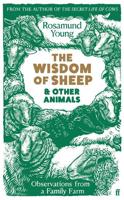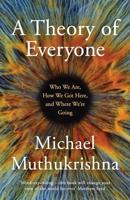Publisher's Synopsis
Intrigued by a slide showing a woman breast-feeding a monkey, anthropologist Loretta A. Cormier spent 15 months living among the Guaja, a foraging people in a remote area of Brazil. The result is this ethnographic study of the extraordinary relationship between the Guaja Indians and monkeys. While monkeys are a key food source for the Guaja, certain pet monkeys have a quasi-human status. Some infant monkeys are adopted and nurtured as human children, while others are consumed in ritual practices of "symbolic cannibalism".;The apparent contradiction of this predator/protector relationship became the central theme of Cormier's research: how can monkeys be both eaten as food and nurtured as children? Her research reveals that monkeys play a vital role in Guaja society, ecology, economy and religion. In Guaja animistic beliefs all forms of plant and animal life - especially monkeys - have souls and are woven into a comprehensive kinship system. Therefore, all consumption can be considered a form of cannibalism.;The book concludes with a discussion of the implications of ethnoprimatology beyond Amazonia, including a discussion of Western perceptions of primates.












